Building of the Day: 69-71 Dean Street
Editors note: An updated version of this post can be viewed here. Brooklyn, one building at a time. Name: Wood framed row houses Address: 69-71 Dean Street Cross Streets: Boerum Place and Smith Street Neighborhood: Boerum Hill Year Built: 1860, or late 1850s Architectural Style: Greek Revival Architect: Unknown Landmarked: No, but should be part…

Editors note: An updated version of this post can be viewed here.
Brooklyn, one building at a time.
Name: Wood framed row houses
Address: 69-71 Dean Street
Cross Streets: Boerum Place and Smith Street
Neighborhood: Boerum Hill
Year Built: 1860, or late 1850s
Architectural Style: Greek Revival
Architect: Unknown
Landmarked: No, but should be part of an expanded Boerum Hill HD
The story: I’ve always liked theses houses. They are tucked away on Dean Street between Smith Street and Boerum Place, on only the second block of Dean Street. Perhaps because street and pedestrian traffic seems to stay on Smith, the houses seem to be a bit off the popular radar — a situation that probably saved them, after all these non-landmarked years. Boerum Hill is an old neighborhood, and began to be heavily developed in the 1850s, as the growing town of Brooklyn began spreading outward from the docks and shoreline of Brooklyn Heights and what was called South Brooklyn — now Red Hook, Cobble Hill, Carroll Gardens.
Wood framed and brick houses were being built by the dozens, a few lots at a time, by small builder/ developers who acted as their own architects. These two houses were probably built in the very late 1850s, or 1860. The first appearance of either house in print is in 1860, when Charles Kellis, who may have been the builder, petitioned to have his lot at 69 Dean Street enclosed. The permit was granted. The houses are classic wood framed Greek Revivals, of a type found in Brooklyn Heights, Fort Greene, Wallabout, Boerum Hill, and elsewhere in the oldest parts of Brooklyn.
They were built on a brick foundation, with a brick ground floor level, and clapboard siding above. The windows are classic six over six, and the houses have peaked roofs to allow for snow and rain to drain. The windows are replacements, but are the original style for the house. They originally had flat roofs, but in 1873, a Mrs. Dewhurst applied for a permit to substitute a peaked roof for the flat one on number 69. That particular day, there were many permits sought for the same thing, so the advantage of a peaked roof was definitely in the local scuttlebutt at the time. The same was done to 71 at some point, probably soon after.
Both houses became rooming houses almost immediately. There are scores of ads in the Brooklyn Eagle advertising rooms to let with board in both houses, but especially in 69. Most of Boerum Hill seemed to do the same. This was a popular working class neighborhood, whose occupants supplied the workforce to nearby factories and shipyards, and many were also employed as the owners and workers in local retail stores and shops. Like all houses, these two have their tales to tell, mostly stories of births, weddings, deaths and funerals, all taking place here, or nearby. Two are most notable.
In 1882, 71 Dean was home to two “colored” women, named Matilda A. Simmons and Elizabeth L. Hewitt. They were both victims of an unscrupulous life insurance salesman named James Sylvester. He worked for the John Hancock Insurance Company, but had a nice side business going bilking customers. He sold the ladies at 71 Dean life insurance policies, took their initial payments, and never came back with the policies, and never turned the money in to John Hancock. They were not the only victims of his scheme. He was finally arrested, where it was discovered that he was also filing claims to John Hancock for fictitious people who had fake policies, and was pocketing the money. Insurance fraud is not a new crime.
The other story comes from next door at 69 Dean Street. In 1900, representatives of the Society for the Prevention of Cruelty to Children raided rooms here, and found the two children of James and Bridget Line living in filthy and horrible conditions, hungry and crying. The parents were taken to the magistrate, where the sad story came out. Apparently the husband, James Line, had long complained about his wife’s drinking habits, and the neighbors had long complained of the appalling way the children, who were three and one years of age, were being treated. That’s how the Society had found out about the case.
When asked to explain herself, Mrs. Lane, who was 27, was unable to do so. The magistrate lectured the couple loud and long, telling them that neither of them was a fit parent. He ordered them to leave the courtroom and immediately sign up with the nearest clergyman and take the pledge. He sent a court officer out with them to make sure they did so. He then postponed the trial for three weeks, to see how the couple handled their reprieve, and sent them on their way. Considering that he could have jailed the parents, forcing the children into one of the local overcrowded orphanages, this was a compassionate outcome. I hope they did well.
Over the years, the houses have fared relatively well, considering the alternatives. The houses next door to both are long gone, leaving this semi-detached group alone with its neighbor. A photograph, now at the Brooklyn Historical Society, shows the houses in 1960. They’ve lost their original six-over-six windows, the brick looks to be stuccoed over, and number 71 had its doorway altered, and was covered in what looks like fake brick veneer. By the 1980s, 71’s brick had been replaced, or covered, by aluminum or vinyl siding, according to the tax photos. Next door, the clapboard had been replaced by asphalt siding, as well, the more familiar grey textured stuff. All of the window frames were covered or removed.
But today, it’s all a different story. A restoration job to both houses has restored the period details, and new wooden siding has been allowed to weather, giving both houses the look of a New England coastal town street. For the first time since they were built, 71 is again a single family house, while 69 is a two family. The owners of 69 still have to restore the side of the house with clapboard, but their neighbor is done. To the restorers, many kudos, the houses look great. The Wooden House Project blog also has a nice piece on these houses, and was the source for the photo below.GMAP
(Photograph: Nicholas Strini for PropertyShark)





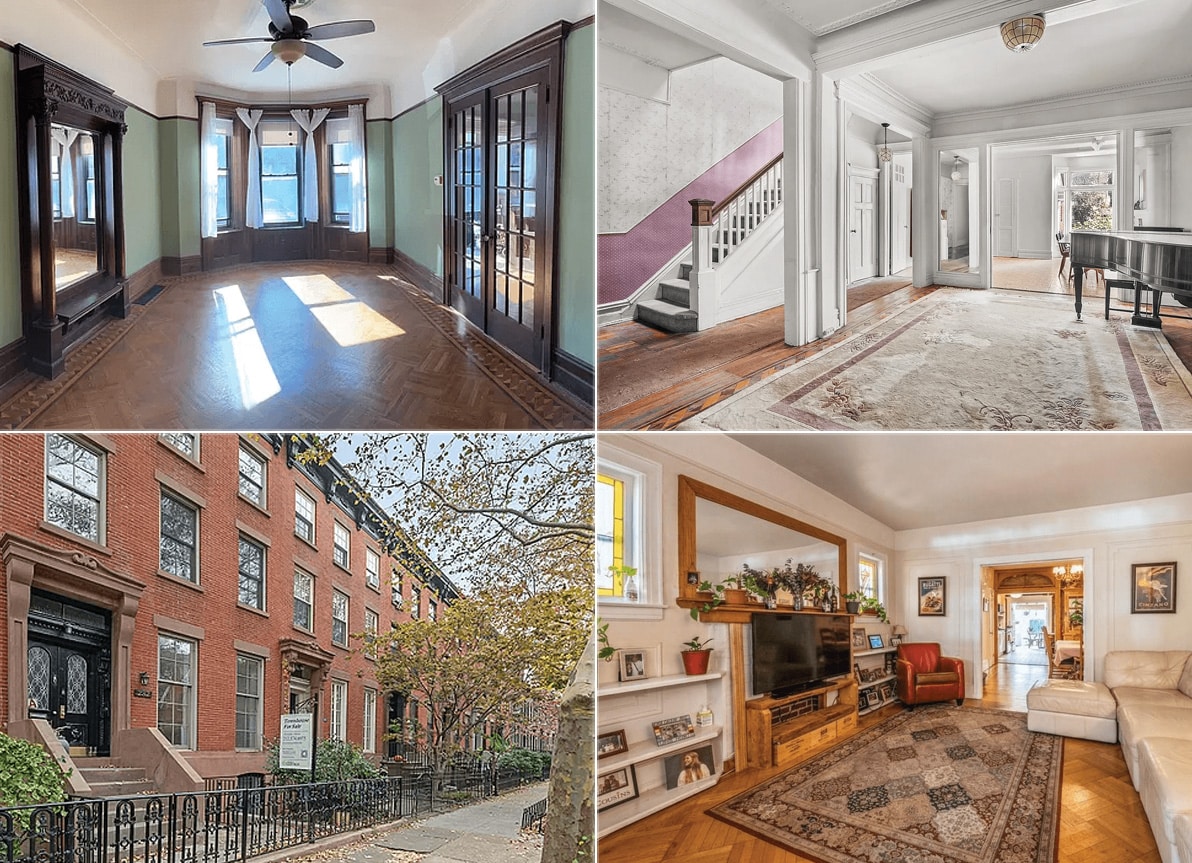
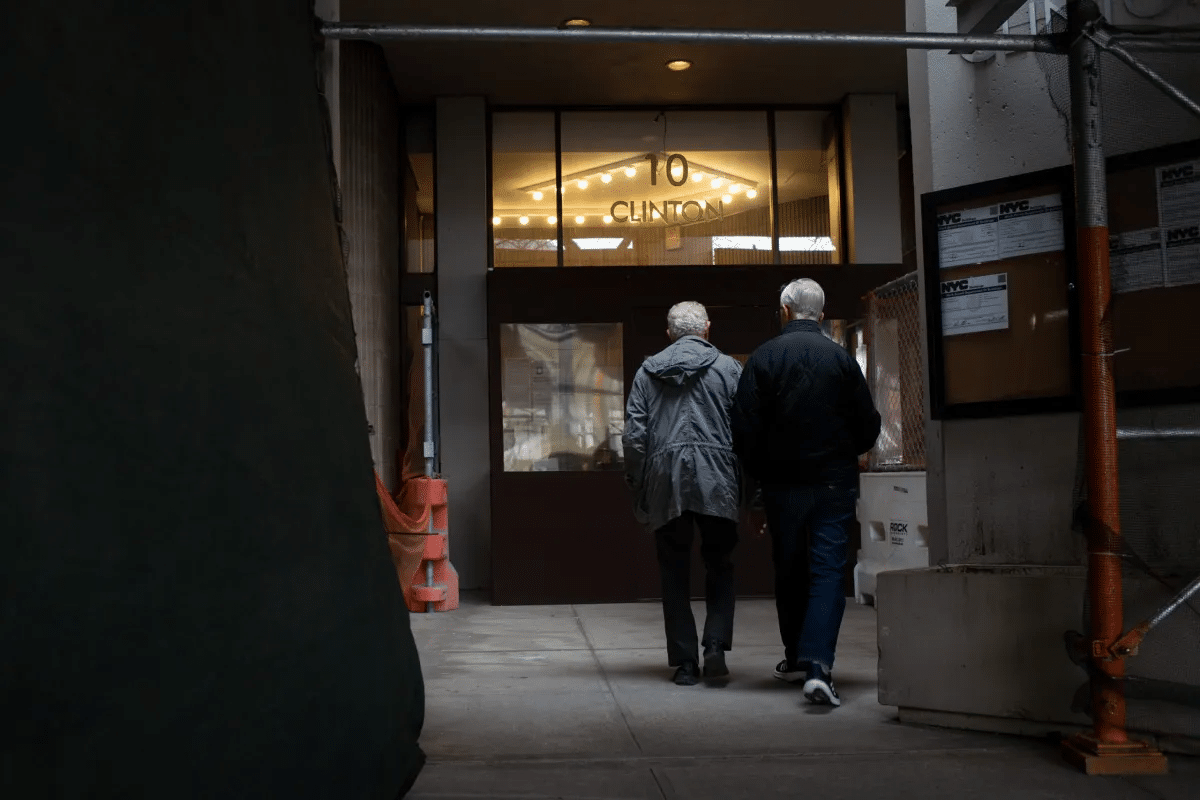
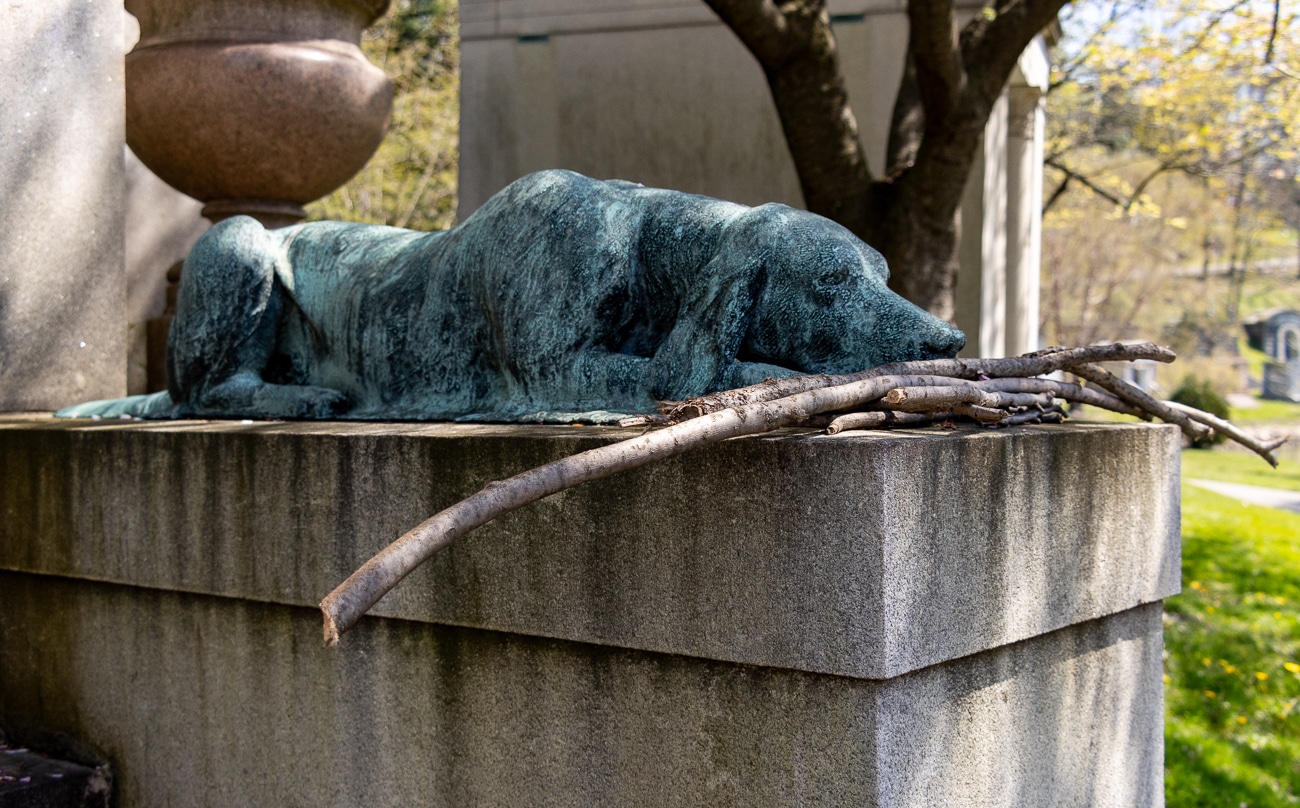
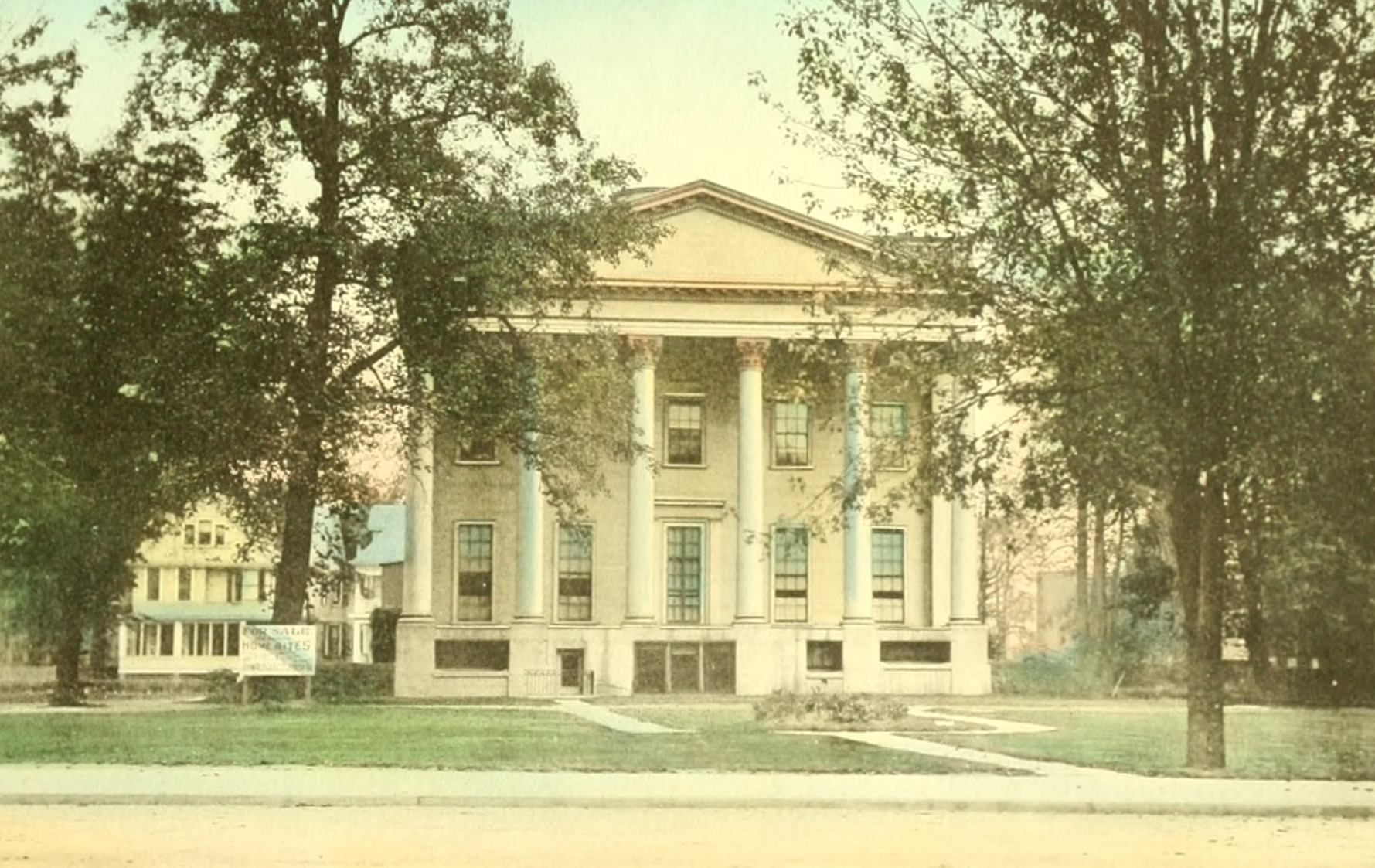
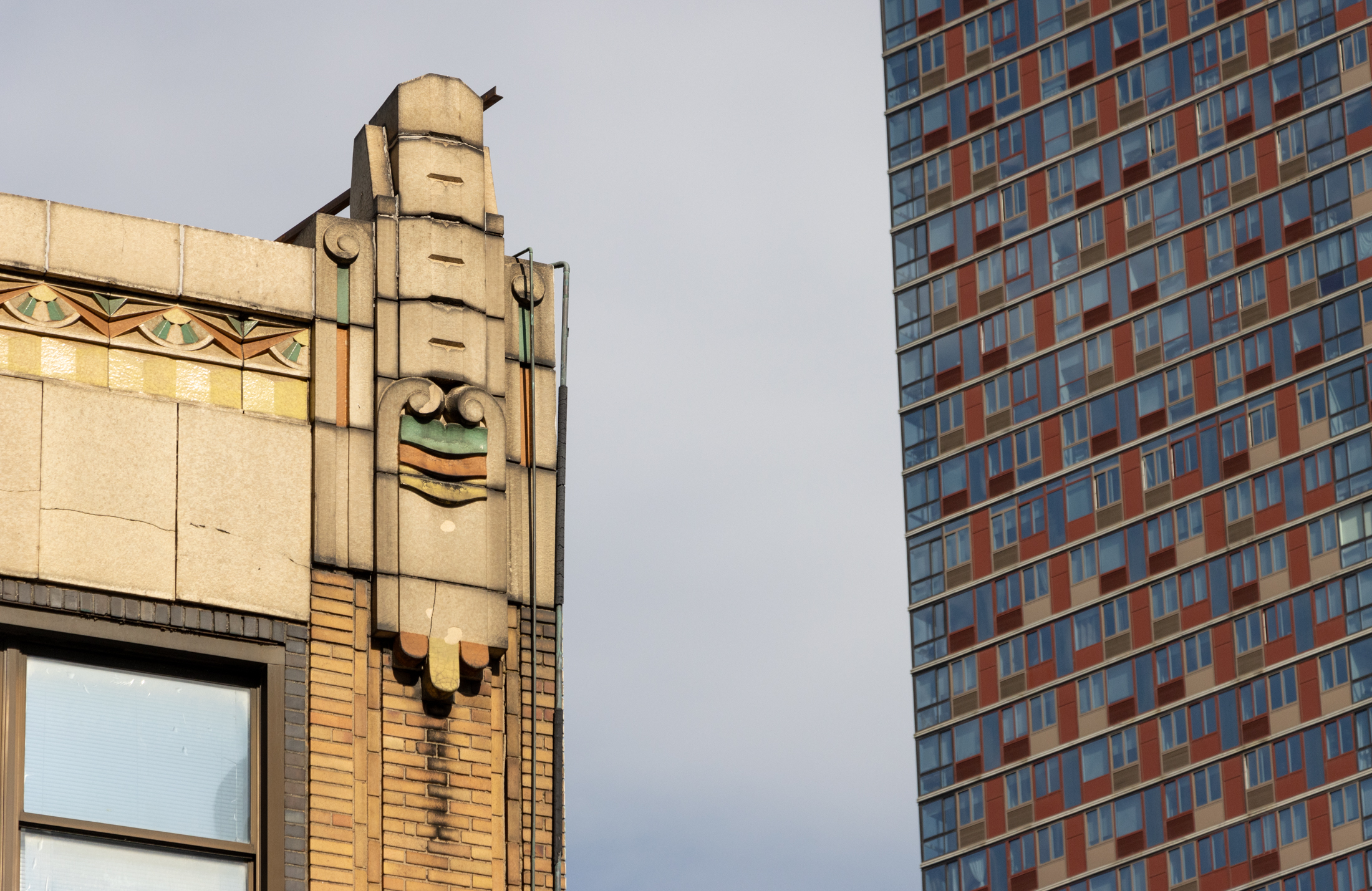
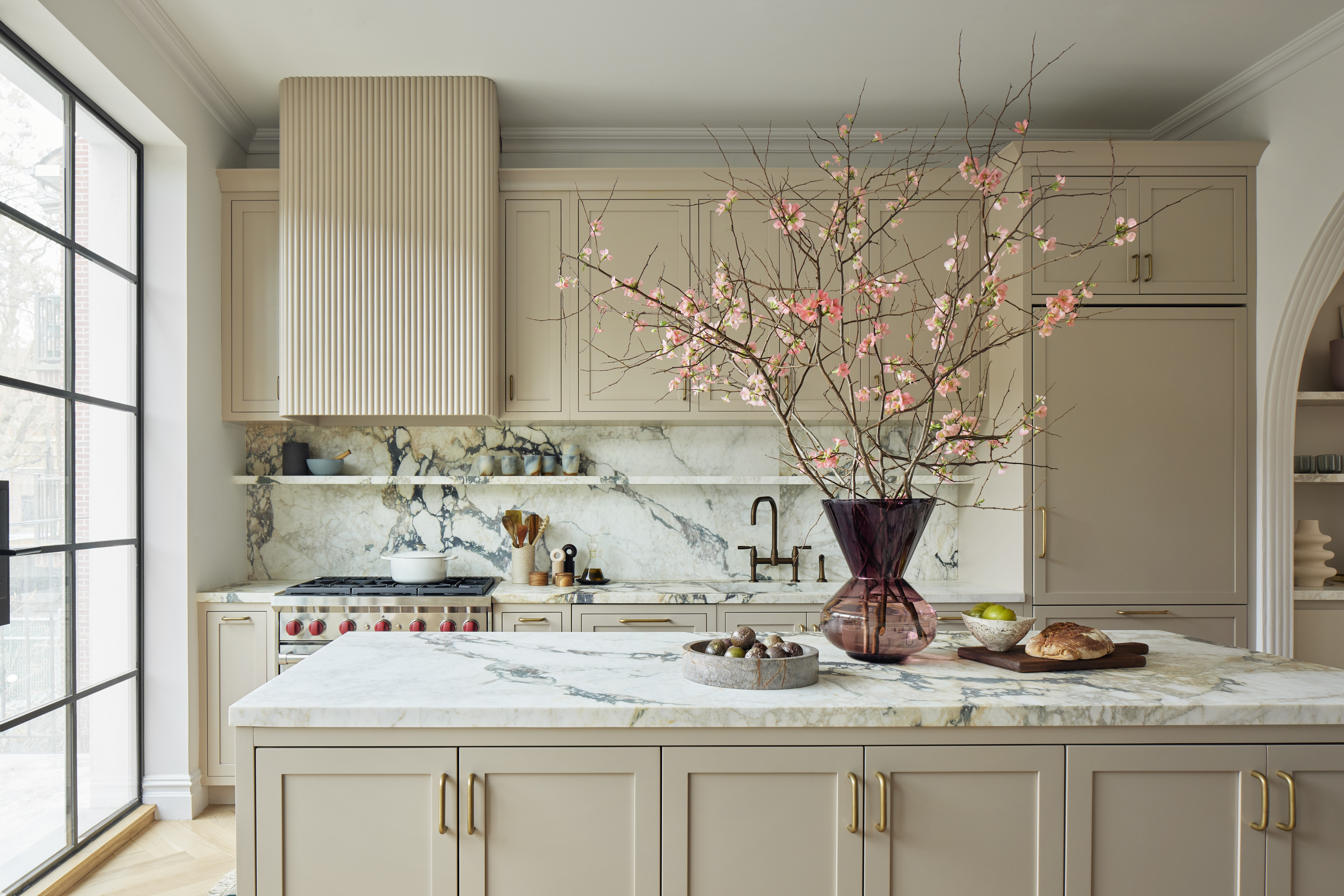
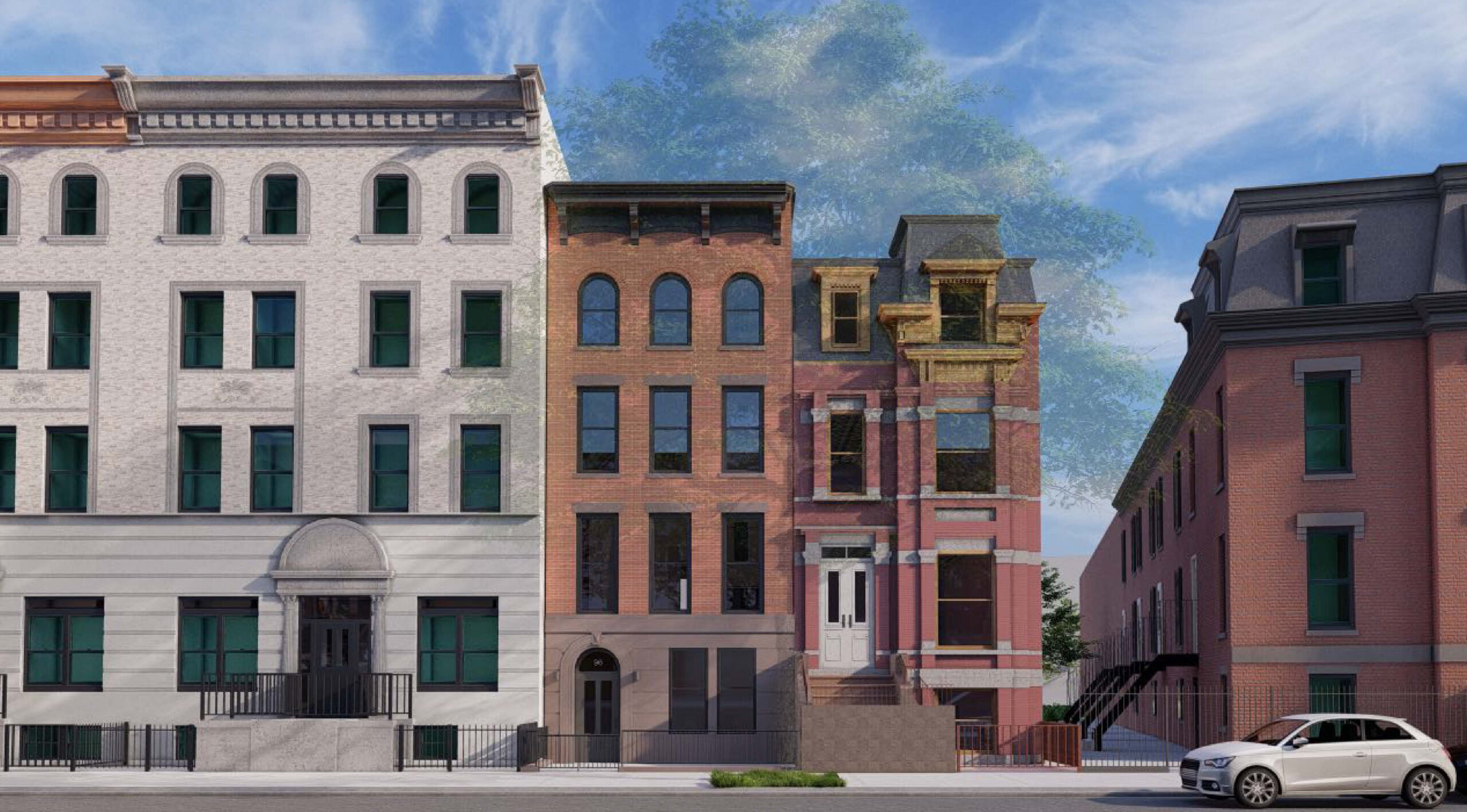
What's Your Take? Leave a Comment